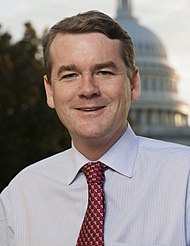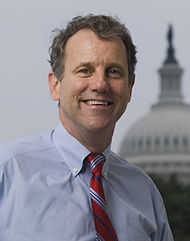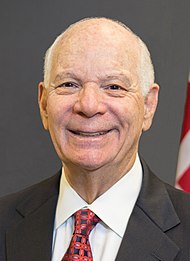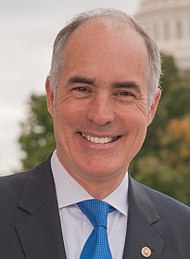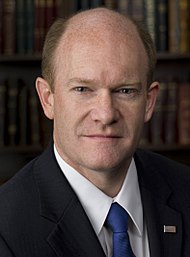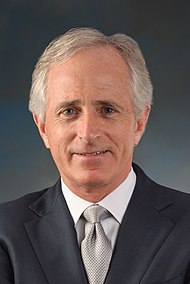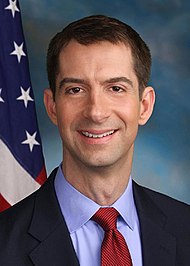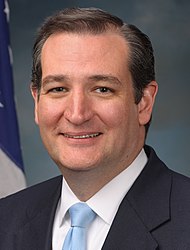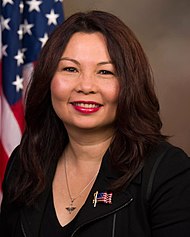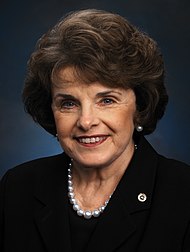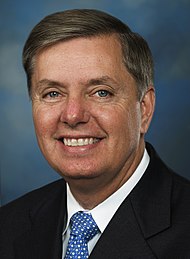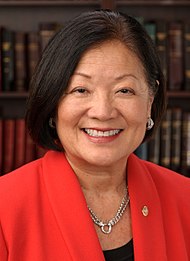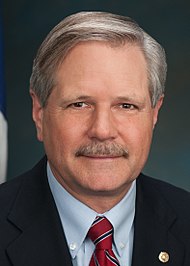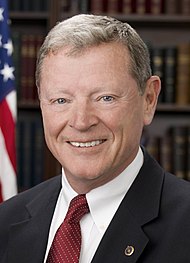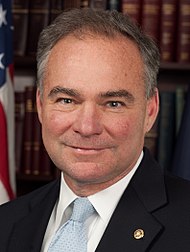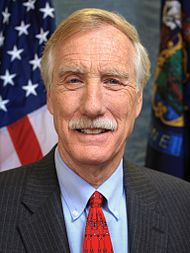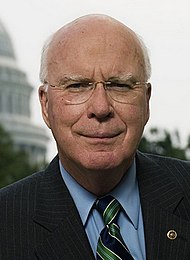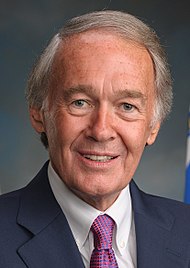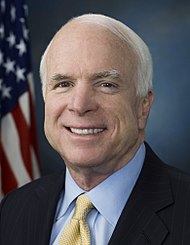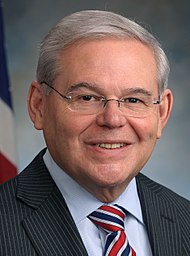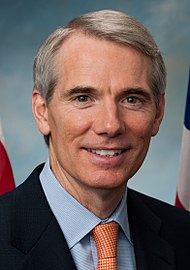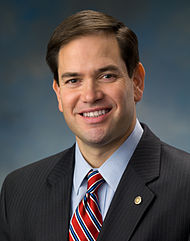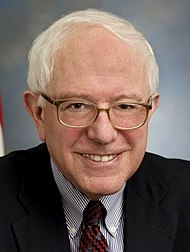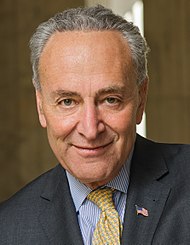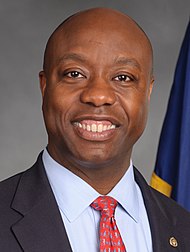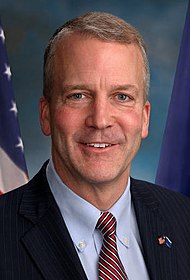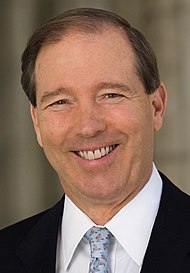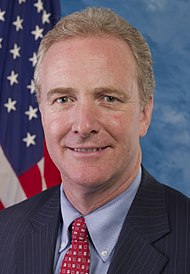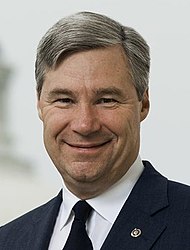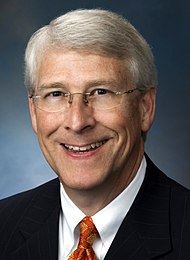Lamar Alexander | Tammy Baldwin | John Barrasso | Michael Bennet | Richard Blumenthal | Roy Blunt | Cory Booker | John Boozman | Sherrod Brown | Richard Burr | Maria Cantwell | Shelley Capito | Benjamin Cardin | Thomas Carper | Robert Casey | Bill Cassidy | Thad Cochran | Susan Collins | Christopher Coons | Bob Corker | John Cornyn | Tom Cotton | Mike Crapo | Ted Cruz | Steve Daines | Joe Donnelly | Tammy Duckworth | Richard Durbin | Michael Enzi | Joni Ernst | Dianne Feinstein | Deb Fischer | Jeff Flake | Al Franken | Cory Gardner | Kirsten Gillibrand | Lindsey Graham | Charles Grassley | Kamala Harris | Maggie Hassan | Orrin Hatch | Martin Heinrich | Heidi Heitkamp | Dean Heller | Mazie Hirono | John Hoeven | James Inhofe | Johnny Isakson | Ron Johnson | Tim Kaine | John Kennedy | Angus King | Amy Klobuchar | James Lankford | Patrick Leahy | Mike Lee | Joe Manchin | Edward Markey | Catherine Cortez Masto | John McCain | Claire McCaskill | Mitch McConnell | Robert Menendez | Jeff Merkley | Jerry Moran | Lisa Murkowski | Chris Murphy | Patty Murray | Bill Nelson | Rand Paul | David Perdue | Gary Peters | Rob Portman | Jack Reed | James Risch | Pat Roberts | Mike Rounds | Marco Rubio | Bernard Sanders | Ben Sasse | Charles Schumer | Tim Scott | Jeanne Shaheen | Brian Schatz | Richard Shelby | Debbie Stabenow | Daniel Sullivan | Jon Tester | John Thune | Thom Tillis | Patrick Tommey | Tom Udall | Chris Van Hollen | Mark Warner | Elizabeth Warren | Sheldon Whitehouse | Roger Wicker | Ron Wyden | Todd Young
Senator Michael Bennet (CO)
President Trump appears to have decided not to certify that “it is in the national security interest of the United States” to stay in the Joint Comprehensive Plan Of Action, or JCPOA, a non-proliferation agreement that restricts Iran’s ability to develop a nuclear weapon. Not certifying absent credible evidence — and against the advice of military advisers — would isolate the United States and severely damage our credibility.
In this context, the president’s reported decision makes no sense. He has not presented evidence that Iran has failed to keep its end of the deal. Our partners in the nuclear agreement, including Germany, France, and the United Kingdom, have affirmed that it is working. The International Atomic Energy Agency, the independent inspection and verification watchdog, has repeatedly said Iran is upholding its commitments. The Trump administration itself has twice certified Iran’s compliance.
Senator Richard Blumenthal (NJ)
This action will undermine America’s credibility with our allies and jeopardize our ability to hold Iran accountable. Nothing has changed since the President twice notified Congress that preventing a nuclear-armed Iran through enforcing the agreement was in our national security interest. I firmly believe we must do much more to hold Iran accountable for its other malign actions. The President has failed to do so and this misstep will make that task even harder.
Senator Roy Blunt (MO)
The Obama administration struck a bad deal with Iran. The nuclear agreement handed the leading state sponsor of terrorism $100 billion in sanctions relief and allowed the regime to continue pursuing a path to a nuclear weapon. Since the agreement has been in effect, Iran has conducted numerous ballistic missile tests, violated multiple legally-binding arms embargoes, and continued providing material support to international terrorist groups. I support the administration’s action and will work with the president and my colleagues to hold Iran accountable.
Senator Sherrod Brown (OH)
There is no question we must crack down on Iran’s destabilizing activities in the region, including its support for terrorism — which is exactly why Congress enacted tough new sanctions this summer. The President should use those sanctions, instead of leading us down a path toward unraveling the Iran nuclear agreement, which his own Defense Secretary has said would not be in our national interest.
Senator Ben Cardin (MD)
I strongly disagree with the President’s reckless, political decision and his subsequent threat to Congress. At a moment when the United States and its allies face a nuclear crisis with North Korea, the President has manufactured a new crisis that will isolate us from our allies and partners, compromising our ability to employ a diplomatic surge on the Korean Peninsula. Despite his assertions to the contrary, the President’s rhetoric and actions today directly threaten U.S. national security and damage our credibility and reputation on the world stage.
Unfortunately, the President has failed to implement the sanctions on Iran passed overwhelmingly by Congress in July and has chosen a path that makes addressing all other elements of a comprehensive Iran policy more difficult by imposing self-inflicted international isolation on the United States.
Senator Tom Carper (DE)
It is beyond curious – almost bizarre, in fact – that President Trump would say the nuclear deal with Iran is not in the best interest of our country’s national security. By every measure, the president is far from an expert on this critical agreement that has kept the Iranian government from developing a nuclear weapon, and subjected the country to rigorous, intrusive and unprecedented inspections by the International Atomic Energy Agency. But some of the president’s closest and most senior advisors, including his Defense Secretary, his Secretary of State, his National Security Advisor and his Chairman of the Joint Chiefs of Staff, are experts, and they have been unanimous: Iran is complying with the deal and it bolsters the security of our country.
Senator Bob Casey (PA)
While I look forward to reviewing @realDonaldTrump Iran strategy, his decision not to make certifications could imperil JCPOA
— Senator Bob Casey (@SenBobCasey) October 13, 2017
JCPOA represents best available option for preventing Iran from acquiring nuclear weapons capability & enhancing visibility of program
— Senator Bob Casey (@SenBobCasey) October 13, 2017
The U.S. should not walk away from Iran nuclear agreement
— Senator Bob Casey (@SenBobCasey) October 13, 2017
I will review @realDonaldTrump strategy & legislative proposals but will not support something that would violate the Iran nuclear agreement
— Senator Bob Casey (@SenBobCasey) October 13, 2017
Senator Chris Coons (DE)
[Trump] doesn’t have to blow up this deal this way, and I think the risks outweigh the benefits, and he’s acting on his own advice to go ahead and to throw this hand grenade in the lap of Congress… My hope is that no one will introduce a bill reimposing sanctions. We’ll all sort of hold our breath, look at each other and there will be no action taken.
See the full interview
Senator Bob Corker (TN)
Over the last several months, we have been working closely with the State Department, National Security Council and Senator Cotton to develop a legislative strategy to address bipartisan concerns about the JCPOA without violating U.S. commitments. We appreciate Senator Rubio’s contributions to this comprehensive framework and look forward to working closely with our colleagues on both sides of the aisle to build support for legislation based on the shared goal of preventing a nuclear-armed Iran.
Senator Cathrine Cortez Masto (NV)
Two years ago, I announced my support for the Iran nuclear deal because it was the best option we had to prevent Iran from obtaining a nuclear weapon. Since then, the U.S. government and international monitors have verified that Iran is complying with the deal on multiple occasions. The President has not reported any evidence of Iran materially breaking the deal to Congress – a requirement under the law.
It took years of work with our allies in Europe, as well as China and Russia, to develop sanctions strong enough to bring Iran to the table. It took a few more years of painstaking diplomacy to develop the agreement. That type of coalition cannot be recreated overnight. The best way to keep Nevadans and our country safe is to stay in the deal and work with an international coalition to keep Iran in check.
The Iran deal has weaknesses that we must continue to think creatively about addressing, but the best starting point for that work is within the deal. We must continue to use every tool at the United States’ disposal to oppose Iran.
Senator Tom Cotton (AR)
In choosing not to certify the Iran deal, President Trump made the right decision. The current deal paves the way to a nuclear weapon for Iran, so Congress and the President must seize this opportunity to fix the deal’s grievous flaws. I also welcome the President’s announcement of a broad strategy to push back on Iran’s support of terrorism, its imperial aggression, and its oppression of the Iranian people. The Iran deal disfigured our wider policy toward Iran, because President Obama was so scared that Iran would scuttle the deal that he pulled his punches on other issues. By not certifying it, President Trump has given Iran a wake-up call and redirected our Iran policy toward advancing U.S. interests and those of our allies.
Senator Ted Cruz (TX)
President Trump has rightly determined that U.S. sanctions relief for Iran is not in the national security interests of America, nor is it appropriate or proportionate to the measures taken by Iran to terminate its illicit nuclear weapons program. Iran has continued to carry out activities to advance their nuclear ambitions and destabilize the region through terror-finance operations.
Decertification is the right first step. Both the Administration and Congress should consider following this measure with the re-imposition of sanctions. We should use every tool at our disposal: economic, diplomatic, and if necessary, military, to ensure that the Ayatollah never obtains a nuclear weapon.
Senator Tammy Duckworth (IL)
While the Iran nuclear agreement was far from perfect, it has been successful in halting Iran’s dangerous development of nuclear weapons. President Trump’s rash and reckless announcement today threatens to destroy years of progress and weakens key pillars of our global non-proliferation efforts.
Unfortunately, today’s decision will isolate us from our allies, empower our enemies and leave the U.S. with little leverage on the world stage. The Trump administration also undermined our country’s ability to use diplomacy to negotiate future agreements, which is particularly worrisome as we attempt to find a diplomatic path forward on the North Korean crisis. Moving forward, it is up to Congress to be responsible and pick up the pieces of the President’s mess.
Senator Dick Durbin (IL)
Thanks to the Agreement and its inspectors, Iran is further away from a nuclear weapon than at any point in more than a decade. It has agreed to never pursue a nuclear weapon and to continue intrusive inspections around the clock. That’s good for America’s security and the security of our allies in the Middle East.
Pulling out of the Agreement would only empower Iran’s hardliners and weaken America’s standing with our allies—allies we depend on to face down growing threats in other parts of the world, like a nuclear-armed North Korea.
America and the world do not need another nuclear threat. Playing fast and loose with nuclear weapons invites disaster. Make no mistake, President Trump’s bad faith move alienates the United States and makes other countries—friend and foe alike—less likely to trust America’s word in the future. He alone will own the results.
Senator Joni Ernst (IA)
Two years ago, I warned that the JCPOA fell dangerously short of its intended goal to dismantle Iran’s nuclear program. Today, it is clear that the flawed agreement negotiated by then-President Obama has indeed paved the way for Iran to obtain and deliver a nuclear weapon without repercussion.
Therefore, I support President Trump’s decision not to certify the deal under the Iran Nuclear Agreement Review Act. This action does not withdraw the United States from the JCPOA, but rather, it provides an opportunity for Congress to work with the Trump administration and our allies to fix the failures of the original agreement. We will maintain a position of global leadership by upholding our obligations, while finally beginning to hold Iran accountable for not meeting the expectations of the international community. This starts today with the President’s decision not to certify the deal, and his decision to target the Iranian Revolutionary Guard Corps for proliferating weapons, abusing human rights, and sponsoring terror.
I look forward to working with the Trump administration, my congressional colleagues, and overseas partners in the weeks and months ahead to formalize a strategy that successfully achieves its objectives and protects American interests.
Senator Dianne Feinstein (CA)
The president’s decision to weaken the Iran nuclear agreement is reckless and irresponsible. Leaving now would only undercut our ability to solve future diplomatic crises, including North Korea.
Abandoning this multilateral agreement would only isolate the United States from our allies. As former Israeli Prime Minister Ehud Barak said, ‘Even if America decides to pull out of it, no one will join—not the Chinese, not the Russians, not even the Europeans. It will serve the Iranians.’
Congress must now decide whether to reimpose sanctions against Iran. For our own national security, I urge my colleagues to vote against reimposing sanctions as long as Iran is upholding its side of the agreement. If Congress reimposes sanctions, it’s the United States, not Iran, that will have broken its commitments, further damaging our credibility on the international stage, making a diplomatic solution with North Korea that much harder.
Senator Kirsten Gillibrand (NY)
It is unfortunate that President Trump has ignored the findings of his Secretary of Defense and Chairman of the Joint Chiefs that Iran is complying with the agreement and that the agreement is in our national interest, and has chosen not to certify the Iran deal. This purely political act undermines America’s position in the world and strengthens Iran’s, while sending an unfortunate message to North Korea. Congress must reject any effort to unilaterally renegotiate the agreement and instead focus on working with our allies to ensure implementation of the agreement and to address Iran’s other bad behavior.
Senator Lindsey Graham (SC)
He’s fulfilling a campaign promise. This is a terrible deal. To those who said this deal would make Iran a better member of the family of nations, it was a miserable failure. He promised to tear it up, and decided not to tear it up, but decertify, which I think he’s right to do, and push the world and Congress to a get better deal before it’s too late…
Senator Maggie Hassan (NH)
The Chairman of the Joint Chiefs of Staff, the Secretary of State, and the Secretary of Defense have all said that Iran is complying with the nuclear deal. Pulling out of this deal would make us less safe, would almost guarantee that Iran gets a nuclear weapon, and would undermine America’s diplomatic standing, including efforts to stop the spread of nuclear weapons throughout the world.
Senator Martin Heinrich (NM)
At a time when our President is bringing us closer to the brink of nuclear war with North Korea, it makes zero sense to effectively walk away and allow Iran to re-start its nuclear program. Even President Trump’s Secretary of Defense has stated that Iran is in compliance with the nuclear agreement and that it is in the U.S. national security interest to stay in the agreement.
The agreement is built on verification and it has blocked Iran from each and every pathway to a nuclear bomb. It is entirely unclear that this Administration has any motivation beyond politics and wanting to oppose anything the previous Administration supported.
Senator Mazie Hirono (HI)
Our European Allies, the United Nations, and the President’s own civilian and military national security team all agree that Iran is not in material breach of the Joint Comprehensive Plan of Action (JCPOA).
Senator John Hoeven (ND)
The bottom line is this – the current deal keeps Iran on course to obtaining a nuclear weapon. The deal is missing vital components, like inspections on military sites and restrictions on ballistic missile testing and development. It allows Iran to receive sanctions relief even while they develop a ballistic missile that can deliver a nuclear warhead, which is why I opposed its approval by President Obama. Decertification does not terminate the agreement, but instead gives Congress the opportunity to strengthen our approach to Iran and block its nuclear program. Our allies in the region and Europe should work with the United States to address Iran’s ballistic missile development and gain inspections of Iran’s military facilities. At the same time, we must hold Iran accountable for its continued sponsorship of terrorism and efforts to destabilize the Middle East.
Senator Jim Inhofe (OK)
Denying presidential certification of the flawed Iran deal is the right call. The Iran deal clearly does not have sufficient means of preventing Iran’s ability to acquire nuclear technology and does nothing to check their litany of other abuses, including developing ICBMs, funding terrorist organizations and supporting rogue regimes like Assad. Worse, it has put our most valuable allies in the region, especially Israel, at greater risk.
Senator Tim Kaine (VA)
President Trump is making a dangerous mistake. Just last week, the President’s own military and national security advisors testified to Congress that sticking with the JCPOA is in U.S. national security interests. This move puts America at risk by potentially freeing Iran to turn its back on commitments to the JCPOA and undercutting our ability to work with the international community to effectively counter Iran’s destabilizing behavior. This reckless decision damages the credibility of the United States, weakens our alliances, and could hamper our ability to counter the nuclear threat posed by North Korea. Since President Trump refuses to be the adult in the room when it comes to foreign policy, the burden is now on Congress to protect an agreement that has made the world safer by preventing a nuclear Iran.
Senator Angus King (ME)
While I’m deeply concerned with Iran’s malign activity in the region, I believe that remaining in the JCPOA at this time is in our national security interest. This is not just my opinion – when I questioned Secretary Mattis on the subject, he unequivocally told the Senate Armed Services Committee the same thing. In addition, national security officials have told us that Iran has abided by the terms of the agreement, and our allies have made clear that they are unlikely to support a renegotiation of the agreement.
As the next steps shift to Congress, I am committed to holding Iran accountable and will work with my colleagues toward that goal. I will consider options that strengthen pressures on Iran without violating the JCPOA and thereby increasing risks to the region and the world.
Senator James Lankford (OK)
I commend the new Iran strategy which rightly seeks to address Iran’s nuclear program, ballistic missile program, support for terrorism, and abysmal human rights record. We must address the entire threat posed by Iran, not just their nuclear program.
Senator Patrick Leahy (VT)
President Trump’s decision not to certify the Iran deal recklessly endangers our national security interests, isolates our country, and is contrary to determinations made by his own Administration that Iran has been compliant with the agreement — all for the sake of fulfilling a campaign slogan. It will signal to the world – including to North Korea – that the United States cannot be trusted to keep its word.
Rather than trying to score political points by talking tough, the President should be working with our partners to ensure the nuclear deal continues to be implemented faithfully, and engaging Congress on a bipartisan strategy to continue combating Iran’s other malign activities.
It is now the responsibility of Congress to find a responsible path forward to protect U.S. national interests, including by refraining from enacting any legislation that would jeopardize the Iran deal. Our credibility and national security depends on it.”
Senator Ed Markey (MA)
President Trump’s refusal to certify Iran’s compliance with the Joint Comprehensive Plan of Action only serves to undermine America’s credibility and isolate us from the rest of the global community. Damaging our credibility and relationships with some of our oldest and most important allies and the rest of the international community jeopardizes America’s national security interests. Every other party to this agreement believes it is working and has warned the United States not to walk away from the commitments it made, not just to Iran but to all of them. That’s why both Defense Secretary James Mattis and Chairman of the Joint Chiefs of Staff Joseph Dunford have stated publicly that it is undeniably in America’s national security interest to remain in an agreement that the International Atomic Energy Agency continues to verify is achieving that objective.
Senator John McCain (AZ)
For years, the Iranian regime has literally been getting away with murder. Meanwhile, the United States has lacked a comprehensive strategy to meet the multifaceted threat Iran poses. The goals President Trump presented in his speech today are a welcomed long overdue change. They offer the United States a path forward that centers our policy towards Iran on its destabilizing regional ambitions rather than its nuclear program alone. I look forward to learning more about the specifics of this strategy, and the Senate Armed Services Committee will conduct thorough oversight of our military’s role in it.
I did not support the nuclear deal at the time it was proposed, and many of its specific terms will make it harder to pursue the comprehensive strategy we need. In that sense, I agree with the President that the deal is not in the vital national interests of the United States. I look forward to working with my colleagues in Congress on additional legislation to increase sanctions and other pressure to hold Iran accountable for its broader destructive behavior in the region. I am also eager to collaborate with our partners and allies to revisit the most problematic provisions of the nuclear deal, and support a unified, forceful international front in the event that Iran materially breaches the terms of the agreement.
Senator Mitch McConnell (KY)
This new strategy announced by the president to contain Iran’s regional ambitions, its malign conduct and efforts to dominate the broader Middle East is an appropriate response to the consequences of the Obama Administration’s failed policies. The Obama Administration’s determination to draw down America’s conventional military presence from across the globe, avoid conflict with competitor nation states even when those same countries threatened our national security interests, and its drive to negotiate an agreement with Iran that left a state sponsor of terror with an internationally recognized nuclear enrichment program was simply inadequate.
An element of this new approach to Iran is to recognize that our strategy must be based on the national security interests of the United States, such as preventing the proliferation of weapons of mass destruction, countering terrorism and preserving our security and that of our allies. This overall approach to staunch Iranian aggression cannot be held hostage to the JCPOA. For too long the Obama Administration ignored Iranian harassment of U.S. naval ships in the Persian Gulf, efforts of Shia militias to create a land bridge through Iraq and Syria to Hezbollah and the arming of the Houthis in Yemen. The Trump Administration now has the opportunity to work with the Congress and our allies to respond appropriately to these actions.
Senator Bob Menendez (NJ)
No one was stronger in their opposition to the Joint Comprehensive Plan of Action than I was. In short, I believe that a rollback of international sanctions in exchange for Iran only having to limit its nuclear capabilities was a bad deal for the world community. However, today’s decision to decertify under INARA was more about campaign promises and less about our national security interests.
Moving forward Congress should evaluate the JCPOA through a lens that understands the geopolitical reality we live in today. The United States cannot afford to ignore our international obligations, the importance of our multilateral diplomatic efforts in 2017, or the broader national security implications of diminishing our credibility on the international stage…
Instead of alienating our allies by decertifying the JCPOA, the President should be leveraging certification to get their commitment to join our efforts to more robustly counter the Iranian regime’s indisputably nefarious behavior.
Senator Jeff Merkley (OR)
Make no mistake: With his announcement today, President Trump is putting America at risk. Most immediately, this reckless decision could give Iran a path to back out of the nuclear deal and resume its race to a nuclear bomb. A nuclear-armed Iran could become the single greatest national security threat we face and would be an immediate existential threat to Israel. At a time when our own intelligence agencies and every international monitor says that Iran is in compliance with the strict limits and monitoring of the JCPOA, blowing up this agreement is the definition of a self-inflicted wound.
Senior members of the Trump Administration and our military, from Defense Secretary James Mattis to Chairman of the Joint Chiefs Joseph Dunford, have indicated that they think it is in the best interest of the United States to stay in the deal—and that pulling out will profoundly hurt our credibility around the world. It is a sad statement that today President Trump put personal vendettas ahead of the recommendations of his own experts and the safety of the American people.
In the weeks ahead, Congress will play a critical role in determining whether today’s decision goes forward in a meaningful fashion. As a member of the Senate Foreign Relations Committee, and as a concerned American, I will do everything I can in partnership with my colleagues to prevent this travesty of a decision from going into effect.
Senator Chris Murphy (CT)
Ripping up the Iran Deal would be a catastrophic self-inflicted wound for America, putting Iran on a course to get a nuclear weapon and pushing the United States even farther away from our allies. Keeping Connecticut families safe and protecting our national security is my number one priority. After studying the issue, I came out in support of the Iran Deal because I concluded it was the best way to prevent Iran from obtaining a nuclear weapon that would threaten the United States and our allies, especially Israel.
Senator David Perdue (GA)
President Trump is correct to decertify President Obama’s dangerous Iran Nuclear Deal because it is not in our national security interests. In no circumstance can we allow Iran to develop a nuclear weapon and President Obama’s deal laid out a road map for Iran to do just that. I applaud President Trump’s action to decertify. Decertification gives the U.S. significant leverage at the negotiating table to get the international community on board to tackle non-nuclear issues and to address shortcomings in the deal, like sunset clauses and inspection loopholes. To be clear, this is part of a long-term regional strategy. This includes countering Iranian influence in Yemen, Iraq, and Syria, where Iranian proxies have been gaining control and influence in the region. President Trump is doing what the last administration refused to do: reengaging with the rest of the world, while asserting American security interests.
Senator Rob Portman (OH)
I have long opposed the Iran nuclear agreement because I did not believe it was in America’s national security interests. This deeply-flawed agreement, which was opposed by a bipartisan majority in the Senate, has empowered Iran to increase its destabilizing activities throughout the region, while at best pausing—not dismantling—Iran’s ability to produce nuclear weapons and delivery systems. I look forward to hearing more from the administration about how it plans to engage our allies as we move forward, particularly when it comes to addressing some of the biggest weaknesses in the agreement, such as Iran’s ballistic missile program, international inspectors’ access to Iranian military sites, and the sunset timeline for key provisions. It is critically important that we put in place a comprehensive regional strategy to combat Iran’s influence and hold it accountable for both its nuclear program and its destabilizing non-nuclear activities, including its support for sectarian militias and terrorist groups like Hezbollah, human rights violations, and increasing involvement in conflicts in Syria, Iraq, Yemen, and elsewhere. As a member of the Senate Foreign Relations Committee, I look forward to considering legislation to address many of the issues the President raised in his speech today.
Senator Jack Reed (RI)
President Trump’s decision is short-sighted and sets us on a dangerous, unpredictable path. Irresponsibly decertifying the JCPOA now could accelerate Iran’s path to nuclear weapons and make America less safe.
The fact is: this is an arms control agreement that reflects hard won concessions from Iran and includes the most stringent verification regime ever imposed. It doesn’t cover every Iranian action we dislike. President Trump can crack down on those things without tearing up the international agreement. He can negotiate new agreements without eroding U.S. credibility…
Talking tough and saber-rattling may be politically expedient for President Trump today, but Congress needs to take a more responsible approach and do what is best for the safety and security of the American people. We should stick to the agreement and keep the nuclear shackles on Iran.
Senator Marco Rubio (FL)
President Trump made the right decision to decertify the Obama Administration’s Joint Comprehensive Plan of Action on Iran (JCPOA). He is correct in finding that this deal is not in our national interest.
Ultimately, leaving the nuclear deal, reimposing suspended sanctions, and having the president impose additional sanctions would serve our national interest better than a decertified deal that leaves sanctions suspended or a new law that leaves major flaws in that agreement in place.
Senator Bernie Sanders (VT)
President Trump’s speech today was the latest in a series of rash and reckless moves that make Americans less safe. By refusing to re-certify the Iran nuclear agreement, President Trump ignored the public statements of his own national security officials. Last week, Joint Chiefs Chairman Dunford and Secretary of Defense Mattis affirmed to the Senate Armed Services Committee that Iran is meeting its commitments under the agreement and that staying in the agreement is in the national security interests of the United States.
Breaking the Iran agreement would not only free Iran from the limits placed on its nuclear program, it would irreparably harm America’s ability to negotiate future nonproliferation agreements. Why would any country in the world sign such an agreement with the United States if they knew that a reckless president might simply discard that agreement a few years later?
If we are genuinely concerned with Iran’s behavior in the region, as I am, the worst possible thing we could do is undermine this nuclear deal. It would make addressing all of these other problems harder. Unfortunately, I heard no strategy from Trump today, just a lot of bluster.
Ultimately we must seek a better relationship with the Iranian people and a more constructive role for Iran in the region. Trump’s bellicose rhetoric today made achieving those things harder. It will alienate Iran’s people and strengthen the regime’s hardliners, who are much more comfortable dealing with a hostile America than with a reasonable, peace-seeking one.
Senator Chuck Schumer (NY)
President Trump’s own Secretary of Defense and Chairman of the Joint Chiefs of Staff, Generals Mattis and Dunford, both said that it’s in our national security interest to keep the JCPOA in place and I agree. I believe Congress, both Democrats and Republicans, will heed their recommendation.
Senator Tim Scott (SC)
There are no surprises with Iran – they are bad actors who have been funding terrorist actions around the globe for decades. The United States must stand strong against Iran’s rogue actions, and the President made it clear today we will not idly stand by when it comes to Iran. I look forward to a spirited debate in Congress over the coming weeks regarding potential next steps to ensure Iran does not develop a nuclear weapon.
Senator Jeanne Shaheen (NH)
To date, the Iran Deal has successfully contained the nuclear threat from Iran just as intended. President Trump is ignoring the sound advice of military leadership and following through on a reckless campaign promise at the expense of our national security interests. As our country confronts a rapidly escalating nuclear threat from North Korea, it’s dumbfounding that President Trump would at the same time needlessly inflame the threat from Iran. This decision not only exacerbates a nuclear crisis, it severely undermines the credibility and negotiation leverage of the United States in resolving future crises through diplomacy. Despite President Trump’s assertions, this agreement stands no chance of being renegotiated, and our closest European allies, as well as Russia and China, have told him that. I am hopeful that there are Republicans in Congress who are willing to do the right thing and work across the aisle to maintain this agreement.
Senator Dan Sullivan (AK)
I applaud the President’s actions today in which he demonstrated the need to address the Obama administration’s deeply flawed Iran nuclear deal. In the coming weeks, I am hopeful that robust Congressional debate will demonstrate that the United States is now serious in addressing Iran’s destabilizing behavior and hegemonic agenda in the Middle East with a comprehensive U.S. strategy to counter Iran – a country that remains the world’s largest state sponsor of terrorism.
Senator Tom Udall (NM)
The president’s dangerous Iran decision weakens the United States’ position in the Middle East and risks further conflict.
— Tom Udall (@SenatorTomUdall) October 13, 2017
Iran is in compliance with the #JCPOA. U.S. intel agencies and IAEA have both confirmed that Iran is not in breach of the agreement.
— Tom Udall (@SenatorTomUdall) October 13, 2017
Our allies will not support Trump’s dangerous #JCPOA decision. Congress should oppose & not put U.S. in material breach of the agreement.
— Tom Udall (@SenatorTomUdall) October 13, 2017
Congress needs to show leadership where @POTUS won’t. Both parties must come together to uphold our commitments and protect our security.
— Tom Udall (@SenatorTomUdall) October 13, 2017
Senator Chris Van Hollen (MD)
President Trump’s decision today increases the likelihood that Iran will restart its nuclear weapons program, decreases the chances that we’ll come to a diplomatic solution in the North Korea crisis, and dangerously undermines American credibility and leadership worldwide. The 2015 nuclear agreement with Iran – signed by Britain, France, Germany, the European Union, China, and Russia – is working, as Trump himself has admitted. By refusing to certify that Iran is in compliance, without offering a shred of evidence to back it up, the President has made it clear he’s willing to put political grudges before our country’s national security. This act will lead both adversaries and allies alike to question our word.
Senator Elizabeth Warren (MA)
President Trump’s reported decision to decertify the Iran nuclear agreement is dangerous. But don’t take my word for it: ask our nation’s military leaders. The Secretary of Defense admitted just this week that it’s in our national security interest to keep our word and stick to the agreement. The Chairman of the Joint Chiefs of Staff said that Iran is complying with the deal.
Senator Sheldon Whitehouse (RI)
Decertifying our deal to keep Iran from obtaining a nuclear weapon is a step toward a more dangerous world. If the President continues down this path, he will undermine the credibility and good faith we fostered with partners and adversaries alike in negotiating the agreement. He will isolate us from our allies and the international community—relationships we must maintain to address the threat of a nuclear-armed North Korea. And he will make it harder to take on the other challenges Iran poses, including its support for terrorist groups, its meddling in Syria and Iraq, its ballistic missile program, and its dismal record on human rights.
Senator Roger Wicker (MS)
I continue to believe that the pact with Iran, negotiated by the Obama Administration, is a terrible deal for America and our allies. Iran is still the leading state sponsor of terrorism, and its illegal ballistic missile program is advancing. By his actions today, President Trump is giving us the opportunity to strengthen our hand to hold Tehran accountable. Decertification does not end U.S. participation in the agreement, but it does represent the first step toward negotiating a better deal.

